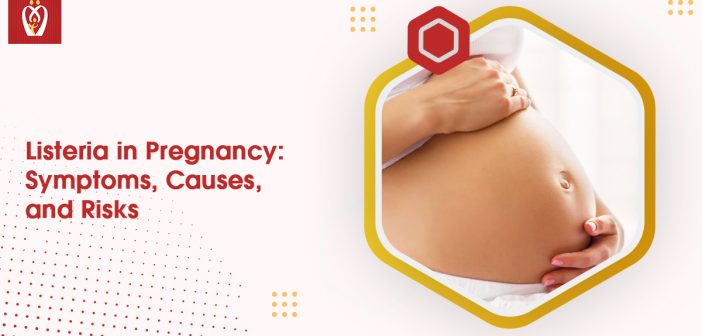Pregnant women, those over 65, and those with compromised immune systems are at particular risk of significant complications from listeria infection, which is transmitted via contaminated food. Deli meats and unpasteurised milk products are two of the most prevalent causes of food poisoning.
Symptoms of Listeria may be lethal to pregnant women, infants, and those with compromised immune systems, although it is seldom a problem for healthy individuals. Listeria infections may be controlled to some extent if they are treated promptly with antibiotics.
Listeria germs are able to tolerate freezing as well as refrigeration. Therefore, those with a greater propensity for severe illness should steer clear of foodstuffs that are most likely to contain listeria.
Symptoms of Listeria
Listeria infection may lead to the following symptoms:
- Fever
- Chills
- Pain in my muscles
- Nausea
- Diarrhoea
After eating tainted food, you may get symptoms of listeria within a few days, but it may take up to 30 days before you notice anything.
If the infection from listeria spreads to your nerve system, you may experience the following symptoms:
- Headache
- Tensed neck
- Confusion
- Loss of balance
- Convulsions
Listeria and Pregnancy
Only moderate signs and symptoms should be expected in pregnant women who have been infected with listeria. However. when a mother and her unborn child are infected, the results may be disastrous. For example, the infant may die in the pregnancy or be infected within days of birth.
There are several signs and symptoms of listeria infection in a newborn:
- There is little desire to eat
- Irritability
- Fever
- Vomiting
- Breathlessness
Listeria and Pregnancy: When to visit your GP
Watch for indications of sickness if you’ve eaten an item that has been recalled due to a listeria outbreak. Do not hesitate to seek medical attention if you are experiencing any of the above symptoms. It’s the same with food poisonings, such as from consuming unpasteurized milk or undercooked deli meats and hot dogs.
If you’re experiencing a high temperature, severe headache, stiff neck, disorientation, or light sensitivity, you should seek immediate medical attention. Listeria infection may lead to life-threatening bacterial meningitis if these symptoms are present.
Listeria and Pregnancy: Causes
There are a variety of places where Listeria bacteria may be found, including soil, drinking water, and even animal waste. A person may get the disease by consuming the following:
- Contaminated vegetables that have been exposed to the soil or contaminated manure used to fertilise.
- Meat that has been tainted with disease.
- Milk or food products prepared with unpasteurized dairy products.
- Consuming tainted processed foods such as soft cheeses or hot dogs
Listeria and Pregnancy: Risks
Listeria infection is more likely to affect pregnant women and persons with weakened immune systems.
Expectant mothers and their unborn children
In pregnant women, listeria infections are much more common than in the general population. Pregnant women who are infected with listeria may have just a minor sickness, but the effects on their unborn children may include:
- Miscarriage
- Stillbirth
- Premature birth
- A potentially fatal infection
People with weakened immune systems
This group comprises individuals who fall into one of the following categories:
- Have reached the age of 65 or more
- Are infected with AIDS
- Undergoing treatment with chemotherapy
- Kidney issues or diabetes
Complications
Most listeria infections go undetected. On the other hand, it may lead to a variety of life-threatening consequences, such as:
- Bacterial infection in the blood
- Meningitis
Prevention
Follow these easy food safety precautions to avoid contracting listeria:
- Keep the area tidy. Using soap and warm water, thoroughly wash your hands before and after handling food. After cooking, wash your utensils, cutting boards, and other food preparation surfaces with hot, soapy water.
- Raw veggies should be cleaned. Using a scrub brush or vegetable brush, wash the fresh veggies under a stream of flowing water.
- Ensure that your meal is properly cooked. Meat, poultry, and egg dishes should be cooked to a safe temperature using a food thermometer.
Precautions for those who are most vulnerable
Take precautions with these types of foods.
- Soft cheeses and cheeses with a Mexican flair. Unless the label makes it apparent that the product was manufactured with pasteurised milk, avoid eating soft cheeses like feta, brie, Camembert, or blue cheese, as well as Mexican-style cheeses like queso blanco and queso fresco.
- Deli meats and hot dogs. These should be avoided until they’ve been warmed to a scalding temperature. Do not prepare other meals using tools or surfaces that have come into contact with hot dog packet fluid. After handling these goods, wash your hands.
- Refrigerated meat spreads should not be consumed. Meat spreads that are canned or shelf-stable (i.e., may be kept at room temperature) are suitable.







